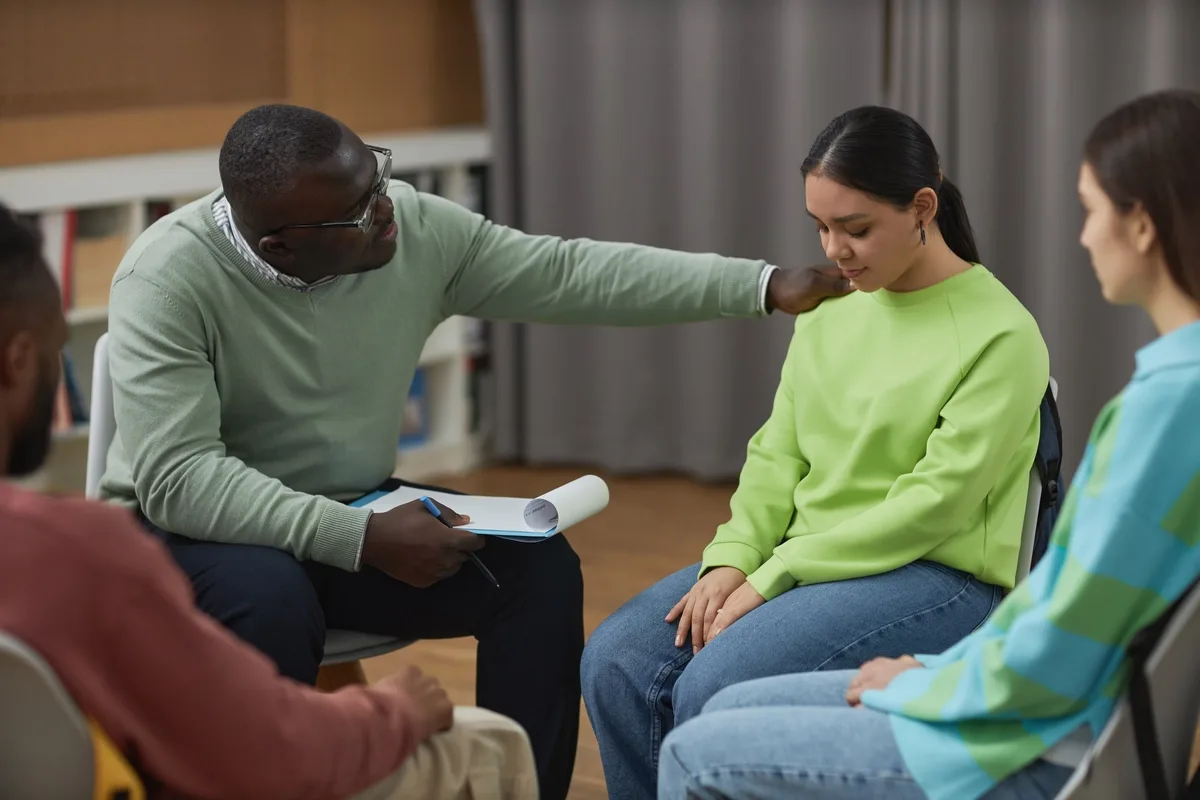24/7 Helpline:
(866) 899-221924/7 Helpline:
(866) 899-2219
Learn more about PTSD Rehab centers in Mahnomen County
PTSD Rehab in Other Counties

Other Insurance Options

Providence

United Health Care

Excellus

UnitedHealth Group

Lucent

Magellan

UMR

WellCare Health Plans

Ceridian

State Farm

WellPoint

GEHA

Aetna

Coventry Health Care

Access to Recovery (ATR) Voucher

ComPsych

Evernorth

Humana

Cigna

BlueShield
























White Earth Men’s Substance Abuse – Primary Care
White Earth Men’s Substance Abuse – Primary Care is a public rehab located in Mahnomen, Minnesota. W...


















